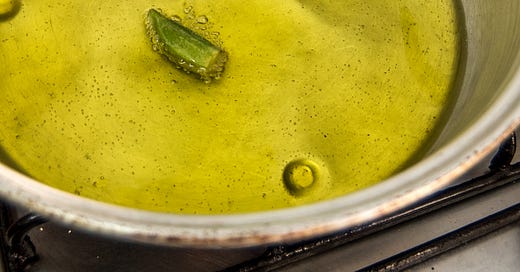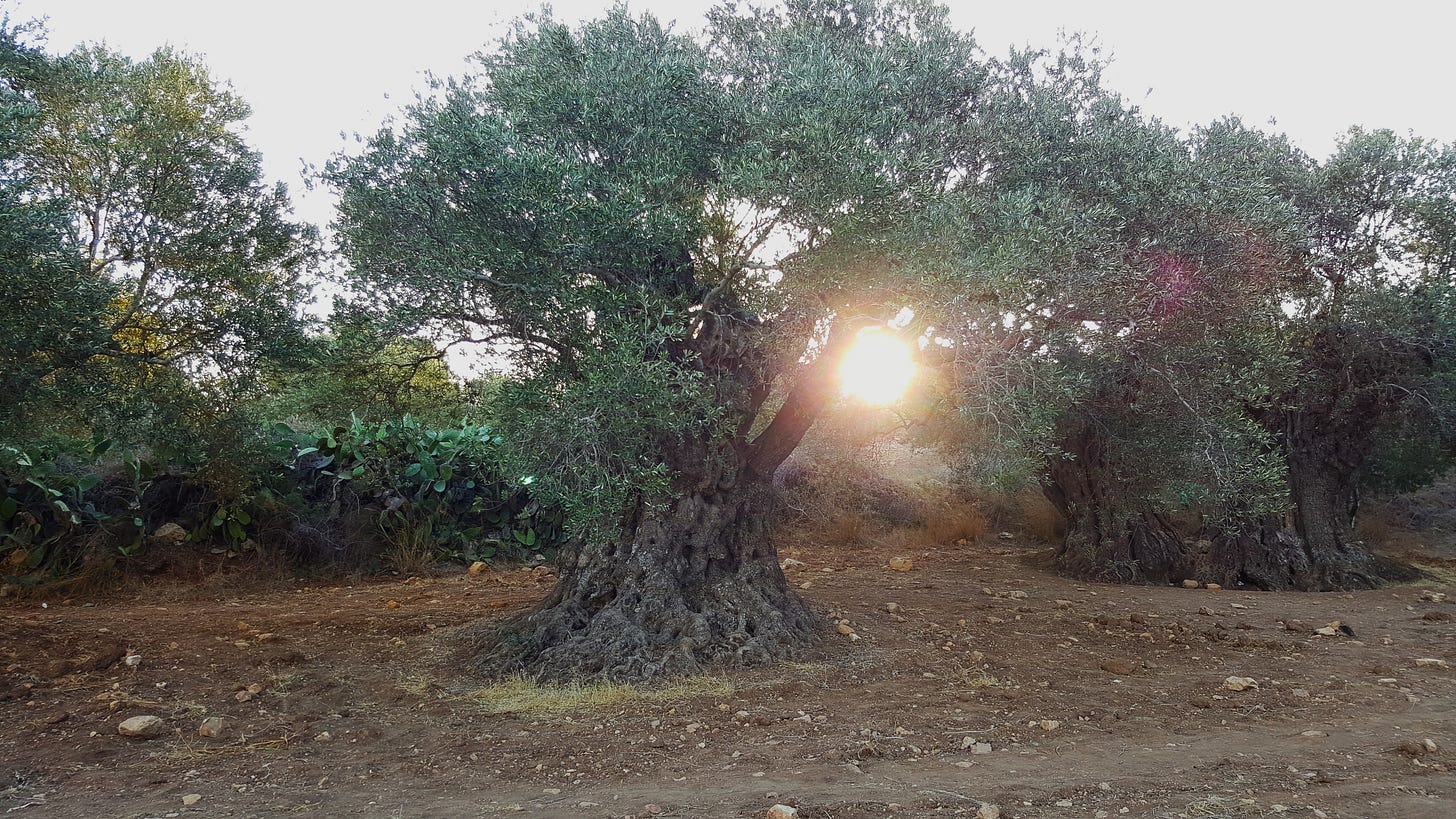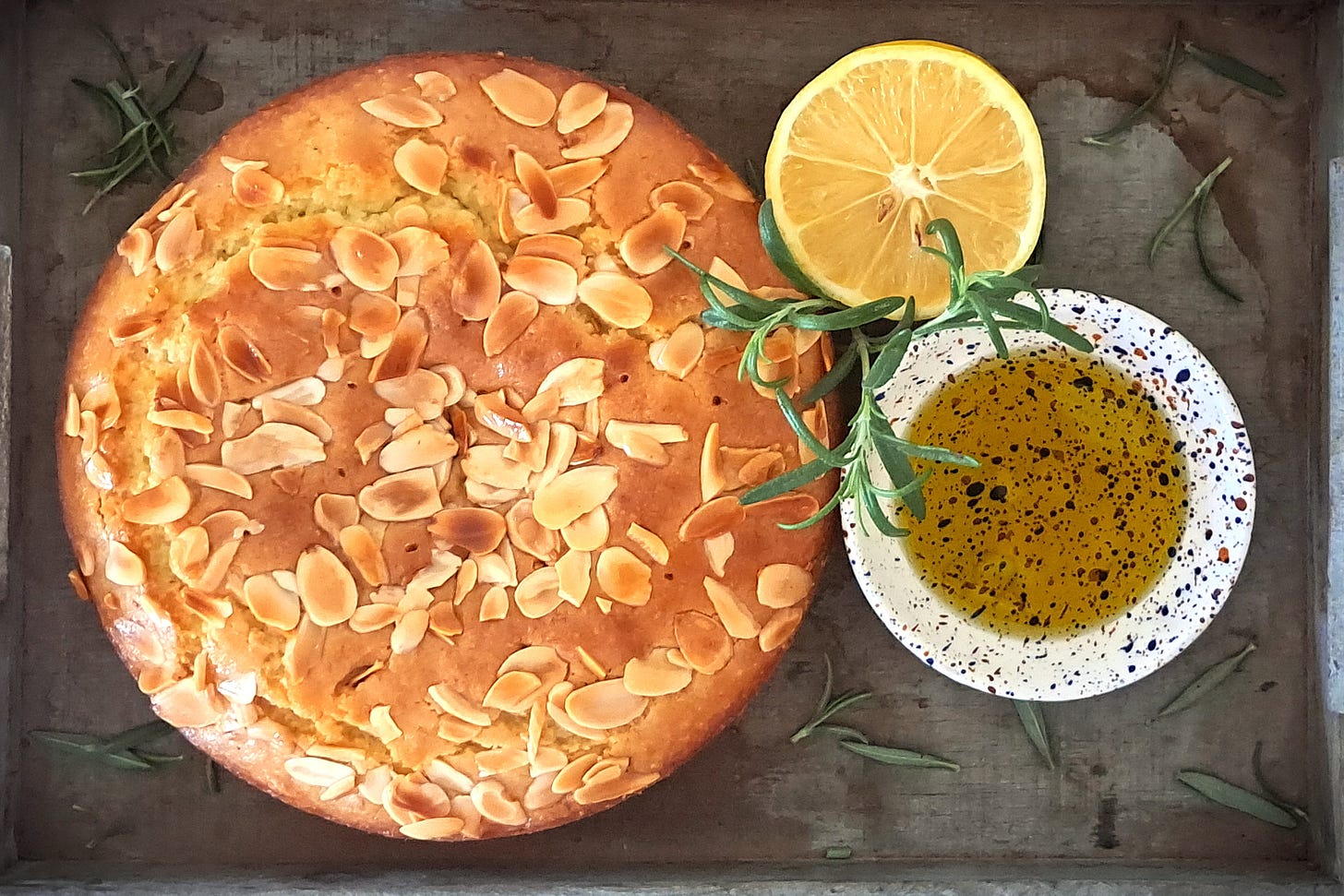After months of blistering heat, there is a slight autumnal chill in the morning air. The clear blue skies are tinged with grey, and black silhouettes from the migrating birds passing through the Hula Valley on route to Africa, dart in and out of the clouds, signalling that the short season of autumn is once again upon us.
The dry, brown topography that is usually beginning to show its first signs of new growth and colour, has been scorched from rocket fires. The expanse of blackened terrain and barren trees overshadow the natural beauty of Israel’s northern landscape, causing consequential damage to its habitat and vegetation. Yet despite such an environmental melee, nature has found a resilience from within, and the olive trees that line the length and breadth of the area seem to have survived the turmoil, as olives still cling onto their branches for dear life, waiting to be processed into oil.
It is only following the first rains of autumn after the long arid summer that the olives, one of the seven biblical fruits of this ancient landscape, are determined to be ready for harvesting and made into delicious extra virgin olive oil. Ancient, gnarled and twisted from over two thousand years of living, the more senior of Israel’s national trees still bear some fruit, but mainly sit proudly adding value to the land and status for the farmers. The younger trees, that line the fertile land wait patiently to be shed of their fruits, which are fully dependent upon many climatic factors as to their size and ultimately the annual yield of oil.
The olives are shaken off the trees and fall with leaves and twigs onto colourful tarpaulin sheets. Tossed into empty sacks and boxes, they are shipped off to one of the local Druze villages that house the few remaining ancient stone presses within the Galilee, preserving the mantra of an old Arabic proverb that “the olive should go from the tree to the stone”.
The craft of crushing olives between large stones dates back thousands of years to the Biblical era, and still considered by many to be the best method for producing high quality extra virgin olive oil. Generations of families are involved in the local production of making the amber nectar, which is mainly used for domestic consumption in an olive oil rich cuisine, that claims its reputation in increasing the life expectancy of the Middle Eastern populace.
For every 5 kilograms of olives collected 1 kilogram of oil is gleaned, and with around 81,000 acres of olive orchards across Israel producing approximately 16,000 tons of extra-virgin olive oil annually, there is excitement looming for the olive oil season and the arrival of this year’s consignment. Yet, tragically with so many groves inaccessible for harvesting both on the northern and southern borders or irreparably damaged from fire, our natural survivors have borne the brunt of this conflict which will undoubtedly impact the amount of precious, organic liquid that will be produced this season and available for our kitchens.
Unrefined, stone pressed olive oil, high in unsaturated fat, is the foundation of this region’s diet. Unique in its flavour characteristics from the ancient terroir and specific varieties of olive that are grown here, olive oil is the most essential ingredient in this healthy cuisine. With “everything starting with olive oil” it is at the very heart of all cooking… and baking.
Using olive oil in the making of cakes, biscuits and desserts, not only gives a delicious flavour to the bake, but is in keeping with the strict dietary laws of keeping kosher and not mixing meat and dairy in the same meal.
My recipe for lemon and olive oil cake with an aromatic rosemary syrup that is poured over the cake whilst still warm, is the perfect autumnal cake using the very best of our seasonal ingredients. The oil is fresh and green, the citrus is sharp and juicy and the rosemary is fragrant and pungent, creating a deliciously balanced flavour profile in every bite.
Easy to make and even easier to eat, try it with a refreshing cup of mint tea or glass of wine…
Olive Oil & Lemon Cake with Rosemary Syrup
for the cake:
200g extra virgin olive oil + extra for greasing
3 large eggs
125g caster sugar
zest of 2 large lemons
150g plain flour
90g ground almond flour
pinch of salt
flaked almonds
for the syrup:
4-5 long sprigs of rosemary
100mls lemon juice (from the 2 large, zested lemons)
100g caster sugar
50mls water
method:
preheat the oven to 180C / 350F / GM4
grease a 20cm round cake tin with olive oil & line the base with greaseproof paper
place the oil, eggs, sugar, lemon zest, flours & salt in a mixing bowl & mix with electric beaters until you have a think batter, pour into the prepared tin, flatten the top with a palette knife & sprinkle flaked almonds over the top, place in the oven and cook for 30-35 minutes until the top is golden & a skewer inserted into the middle of the cake comes out clean
make the syrup:
place all the ingredients for the syrup in a saucepan, bring up to the boil & then turn down to a simmer for 5-10 minutes, turn off and leave to infuse until the cake is ready
once the cake is baked, remove from the oven, make plenty of little holes through the top of the cake with a skewer, strain the warm syrup into a jug & pour over the top of the cake, it will all soak in, so do not worry if it seems a lot of syrup, leave to completely cool in the tin before turning out onto a plate and dusting with a little icing sugar…
Enjoy!








Love it. I hope to visit those olive groves one of these days. Is there any Israeli olive oil u recommend that can be purchased online?
Hi Cammy, there are plenty of great tasting olive oils produced here in the North of Israel that sell online, but I am really not sure if they ship outside of Israel and particularly in the current climate... You could try 'Holive Oil, Extra Virgin Olive Oil from the Holyland' or better still, come over and see us and we can go and buy some together...